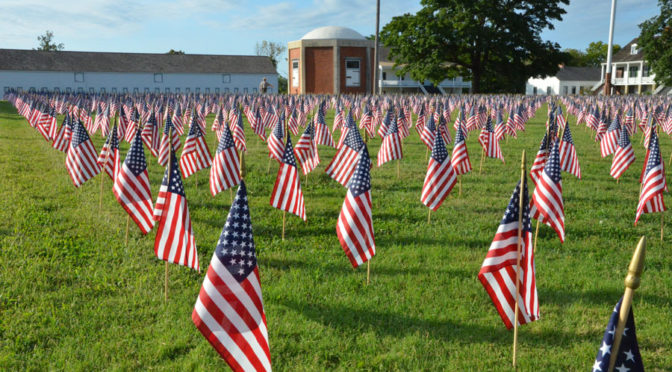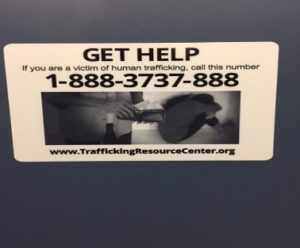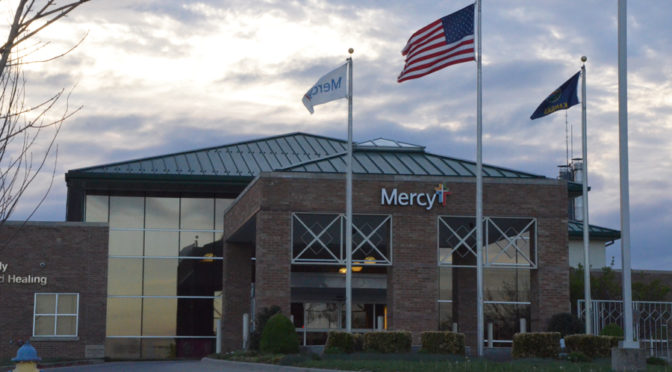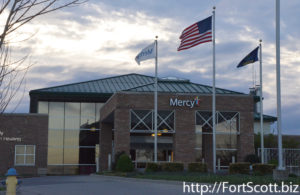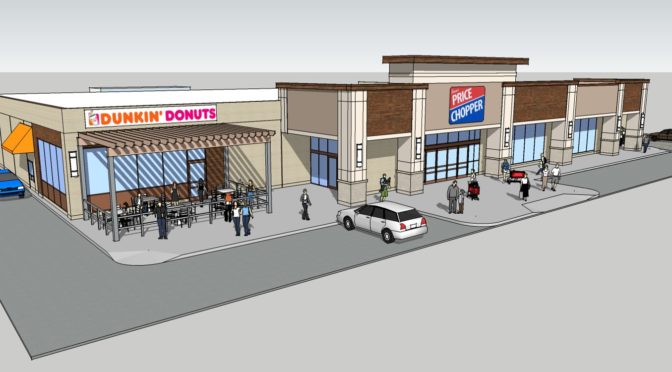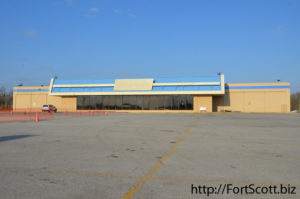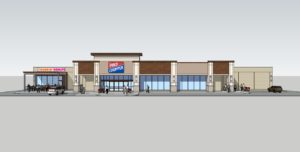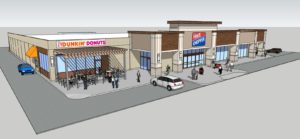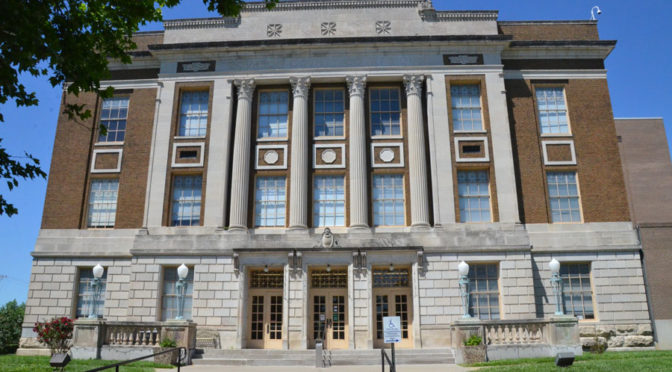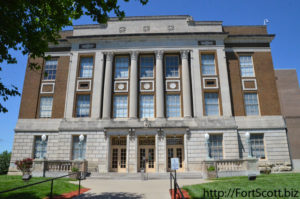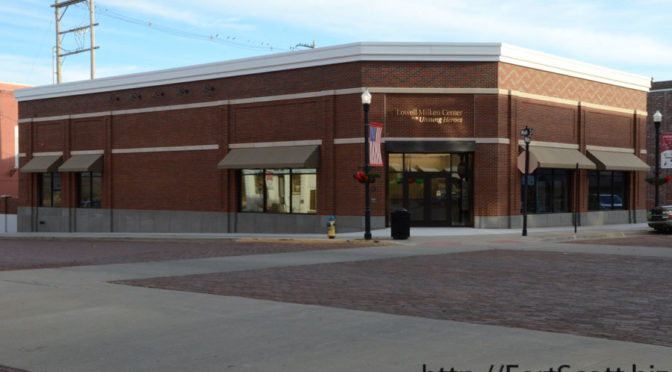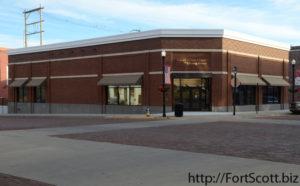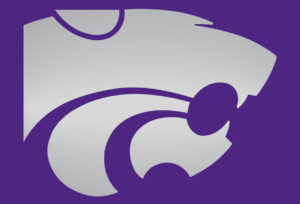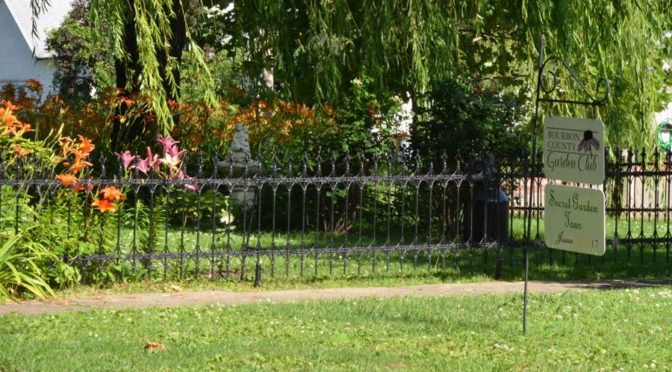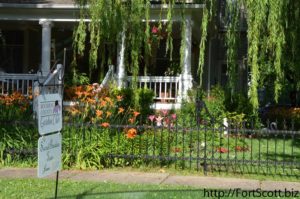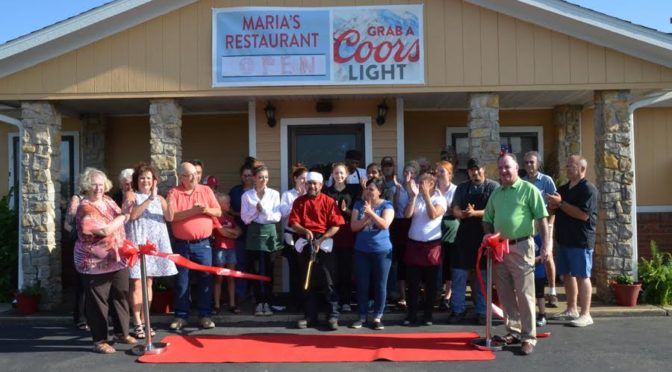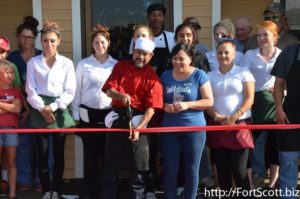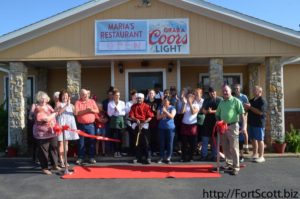Submitted by Fort Scott National Historic Site
As the nation reflects on its freedom on Independence Day, Fort Scott National Historic Site honors those who have lost their lives fighting for this freedom with Symbols of Sacrifice.
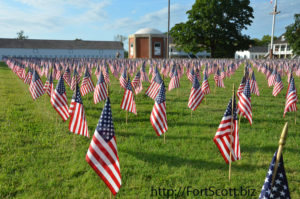
The Symbols of Sacrifice commemoration features thousands of United States flags displayed in a Field of Honor on the historic Parade Ground. The event was moved to the Fourth of July weekend to more inclusively honor the sacrifice of all Americans throughout the nation’s history. The flags will be displayed from Friday, June 30, through Tuesday, July 4. A special concert of patriotic music will be held on Saturday, July 1, at 7 p.m. The park is pleased to welcome musicians Pat and Steve Harry.
Fort Scott NHS will also hold its traditional military and Fort themed activities over the holiday weekend. Esteemed President John Quincy Adams said in celebration of the 4th of July: “The Declaration of Independence! The interest which in that paper has survived the occasion upon which it was issued; the interest which is of every age and every clime; the interest which quickens with the lapse of years, spreads as it grows old, and brightens as it recedes, is in the principles which it proclaims.” Fort Scott National Historic Site proudly honors this tradition and invites you to join us in celebrating our nation’s independence with an Old-Fashioned Military Holiday. Cannon and musket firings, horse soldiers and ice cream are just a few of the free activities offered Saturday, July 1, and Tuesday, July 4.
On Saturday, stop by the Fort and mingle with soldiers, laundresses and officers’ wives as they present garrison life in the 1840s. The bark of cannon and crack of gunfire will be heard throughout the day as artillery programs pay honor to our freedom. At 2 p.m., enjoy a bowl of homemade ice cream provided by the Friends of Fort Scott NHS and witness a 30-gun salute in honor of the 30 states that were part of the Union in 1848.
Activities will continue on Tuesday, July 4, with additional artillery demonstrations and programs focusing on historical events associated with Fort Scott. Join an 1840s Infantry Soldier and Officer’s Wife as they share perspectives on “What Independence Day Means to You?” “A Hearty Grip: The Mexican-American War” investigates essential questions of power and empire that gripped the North American continent 170 years ago during the Mexican-American War. Discover how Fort Scott soldiers played a role and paid the ultimate price in every major campaign of the war. “Ordinary Men in Extraordinary Times – A Patriotic Speech” explores the original signers of the Declaration of Independence and the common soldiers who fought and died for liberty.
The schedule of activities is as follows:
SATURDAY, JULY 1
10:00 a.m. – Artillery Drill and Weapons Demonstration
11:00 a.m. – Guided Tour
1:00 p.m. – Dragoon Talk
2:00 p.m. – 30 Gun Salute: Weapons Demonstration
3:00 p.m. – “Plug, Port, and Peaches” Post Sutler Talk
4:00 p.m. – Flag Retreat
7:00 p.m. – Patriotic Musical Performance by Pat and Steve Harry
TUESDAY, JULY 4
10:00 a.m. – Artillery Drill and Weapons Demonstration
11:00 a.m. – “What Independence Day Means to You?” Guided Discussion
12:00 p.m. – “A Hearty Grip: The Mexican-American War” Interpretive Talk
1:00 p.m. – Guided Tour
2:00 p.m. – “Ordinary Men in Extraordinary Times” Patriotic Speech
3:00 p.m. – Artillery Drill and Weapons Demonstration
4:00 p.m. – Flag Retreat
